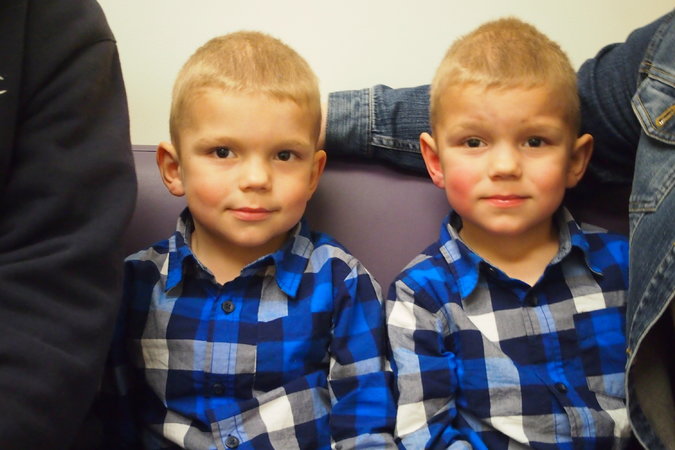A recent study published in Nature suggests that the answer is Yes! Researchers compared eye gaze patterns of (non-autistic) identical twins, fraternal twins, and unrelated children while they watched videos of social interactions. Results revealed that the identical twin pairs spent similar amounts of time looking at the eyes of the people on the screen; in fact, the amount of time one identical twin spent looking at eyes matched the other identical twin 91% of the time. The match was 35% for fraternal twins, and 16% for unrelated children.
Why does this matter? Identical twins share 100% of their genes, whereas fraternal twins (and non-twin siblings) share only about 50% of the same genes. The fact that there was much more concordance in looking at eyes for the identical twins suggests that that this behavior is strongly influenced by genetics. In other words, it suggests that social gaze patterns are heritable. If we can understand the genetic processes that underlie the behavior of “seeking out” social information from eyes, we may eventually learn how this behavior develops differently in children with autism.
